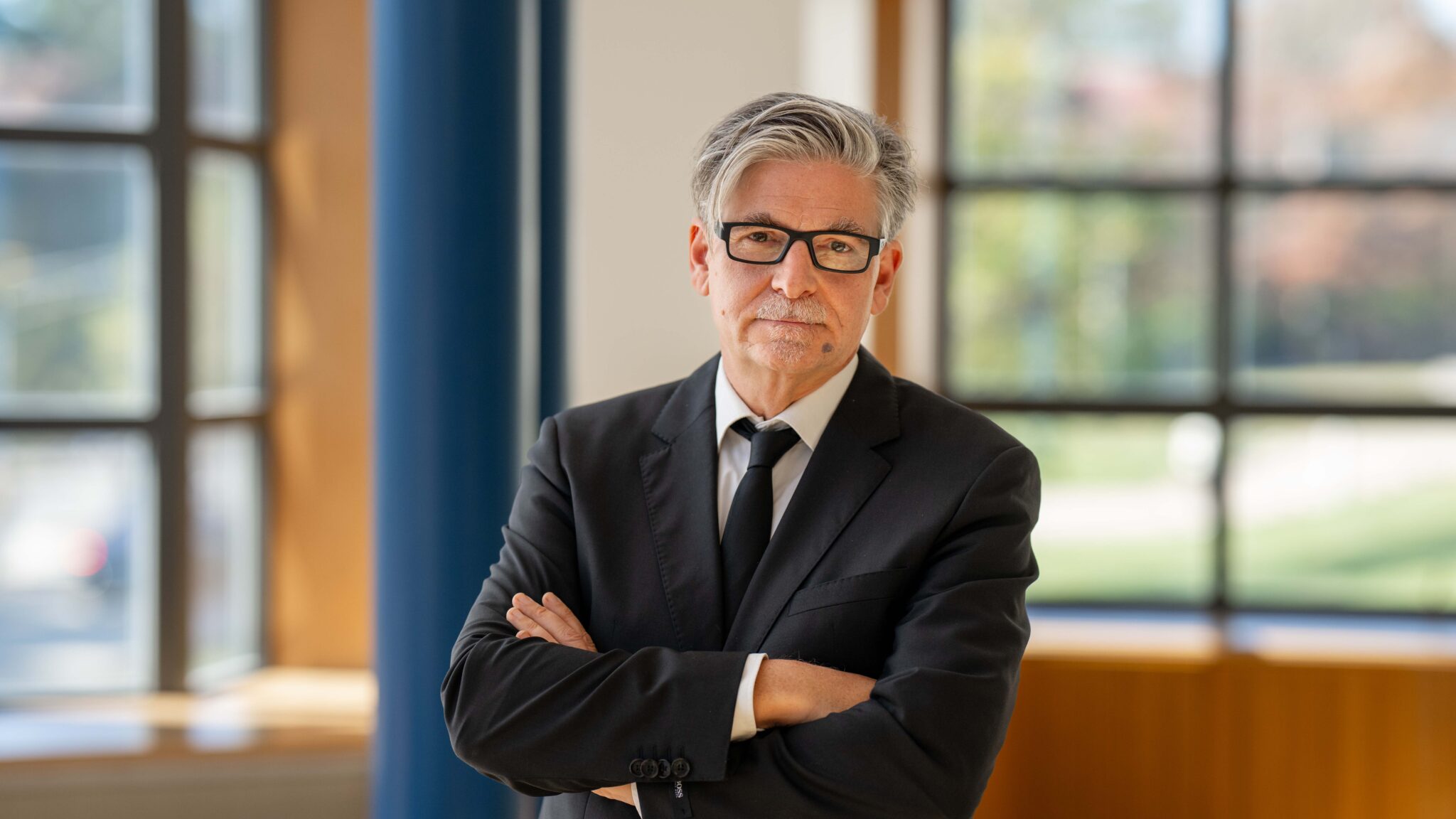This Q&A series highlights the work of the Humanities Council’s current Old Dominion Research Professors. The professorship provides additional research time for Princeton faculty members and seeks to enhance the University humanities community more broadly.
This year, as a 2024-25 Old Dominion Research Professor in the Humanities Council, Jan-Werner Müller (Politics) is working on a book project titled “Christian Democracy: A New Intellectual History.” The book will trace the attempts to reconcile Catholicism and modern democracy.
Tell us why you chose your current research topic.
I started to work on a history of thinkers and politicians who tried to reconcile Catholicism and modern democracy many years ago but then put the project aside for a while to focus on a different research agenda. With the rise of an identitarian religious populism and the emergence of a group of influential hard-right Catholic intellectuals in recent years, the topic has acquired a new urgency for me.
What do you hope that this research will add to your field?
It is a story that has not really been told. There are excellent accounts of Christian Democratic political parties in Europe and Latin America, but not enough attention has been paid, I think, to ideas and arguments put forward by philosophers and theologians which had to achieve two things at the same time: make it plausible to believers that they were not betraying their beliefs when coming around to modern liberal democracy, but also reassure secular citizens that religious actors would not use government power to create a confessional state.
What’s one thing about your current project that you think would interest the public?
Well, there clearly is renewed interest in the question of what forms of politics might follow from religious beliefs. Think of the recent online spat between the US Vice President and British conservative politician Rory Stewart, about the correct interpretation of St. Augustine (and its implications for how we think about the nation and immigration). Soon after that confrontation, [Pope] Francis, in a letter to US bishops, de facto sided with Stewart (and also, I think it’s fair to say, rebuked forms of right-wing populism that try to instrumentalize religion). It looks like Leo XIV might be thinking along similar lines as Francis.
Tell us about a Humanities Council event that you attended this year.
It might seem a tad narcissistic to mention an event where I had the privilege of speaking, but the opening [Humanities Colloquium] centered on Baldwin generated a lot of insights that have stayed with me throughout what, politically and morally, has turned out to be a difficult year (to put it mildly).
What else have you learned during your year as an Old Dominion Research Professor?
I have learnt a lot at the weekly Society of Fellows lunches; some of what I do – the history of political thought – is very much humanities, but as historians of political thought we don’t always keep in close enough touch with other areas in the humanities, for instance literary theory. I also was very happy to receive valuable feedback from very different perspectives at the session in which I could present my project.
Is there any other piece of your work that you’d like to highlight?
I have also continued work on a book on architecture and democracy, in which the famous American architect Louis Kahn plays an important role. It was thanks to the sabbatical and Princeton’s resources that I was able to go to Dhaka at relatively short notice (after a very tumultuous period in Bangladesh) and visit and study the parliament Kahn had created in the 1960s and 1970s.
















